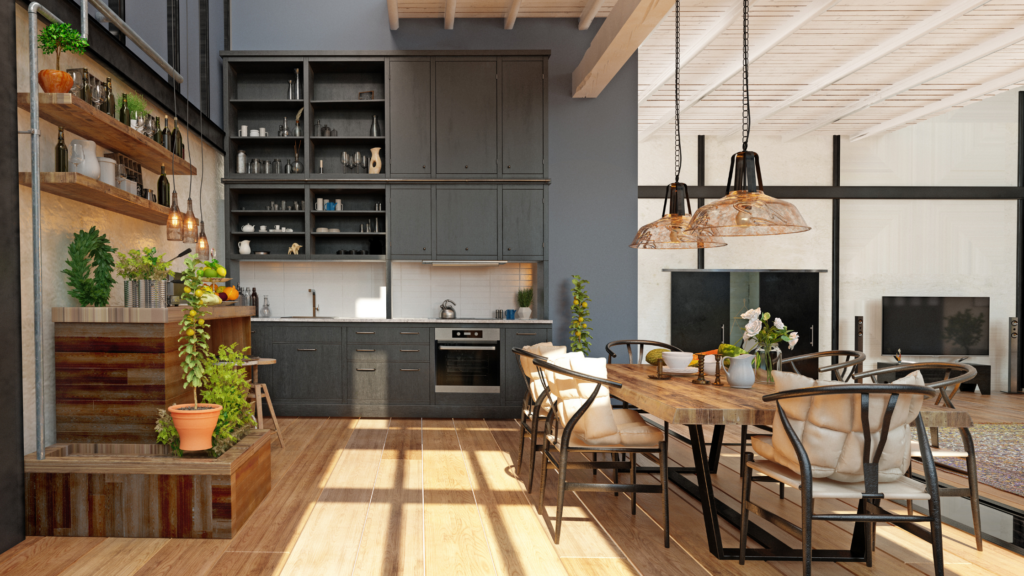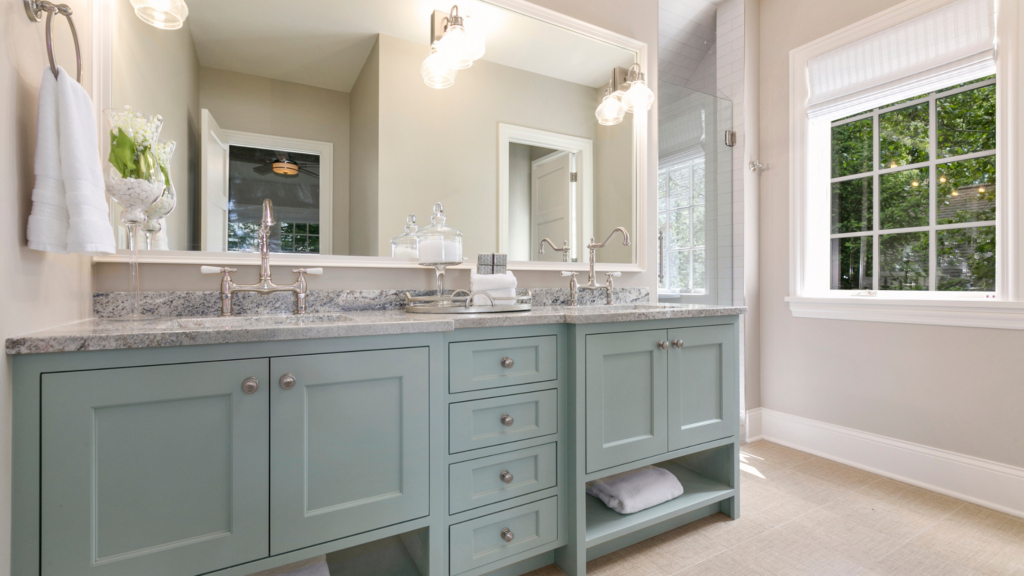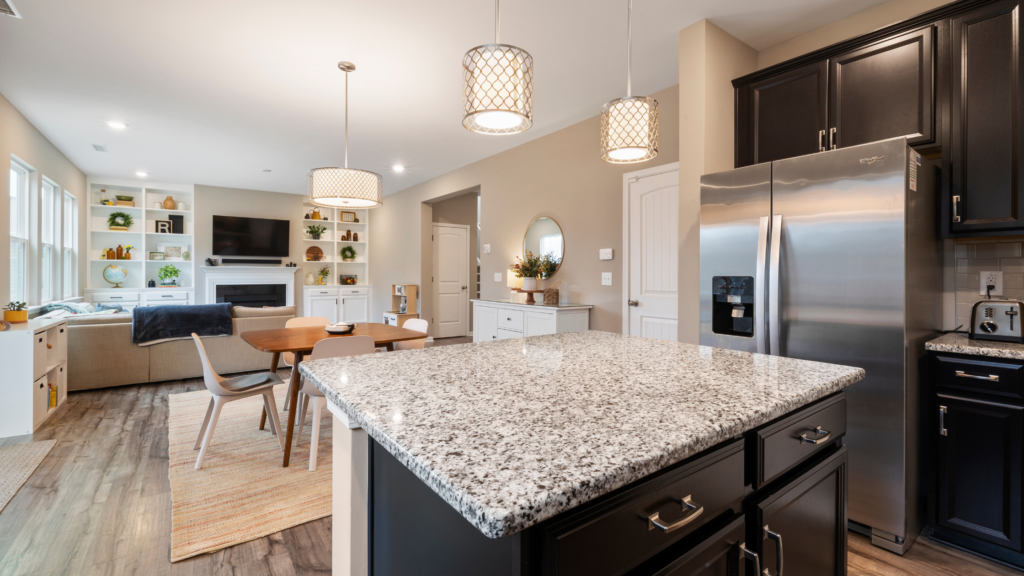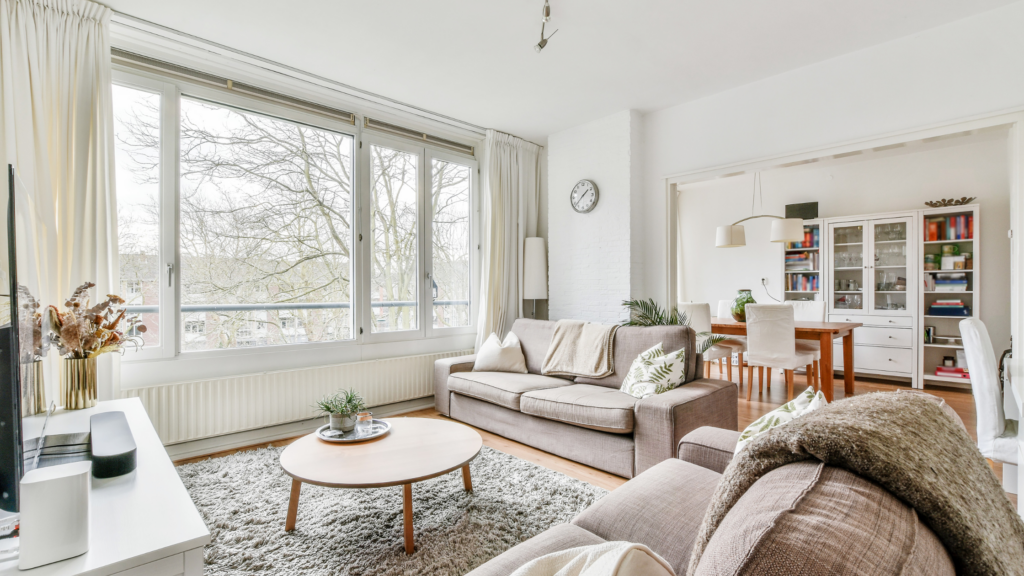by Farley Webmaster | Mar 30, 2025
Spring in Colorado is one of the busiest and most beautiful seasons to sell a home. The flowers are blooming, the sun is shining, and buyers are out in full force looking for that perfect place to land before summer. But with increased interest comes increased competition—so how do you make your home stand out?
Whether you’re in Boulder, Denver, or one of the many vibrant communities in between, here are 7 actionable tips to help you sell smarter this spring.
1. Start with a Fresh Spring Clean
Buyers notice details, and nothing says “well-maintained” like a clean, clutter-free home. Power wash the exterior, wash windows (inside and out), clean baseboards, polish floors, and consider having carpets professionally cleaned.
Pro tip: Clean like a guest is coming over with a magnifying glass.
2. Enhance Curb Appeal
First impressions count. A tidy lawn, blooming flowers, and a freshly painted front door go a long way. Bonus points for new house numbers or porch lighting that elevates the entry.

This image features a tidy craftsman-style bungalow with a freshly painted navy exterior, neatly trimmed landscaping, and welcoming red planters. It reflects the importance of curb appeal and minor upgrades when preparing a home for the competitive Colorado real estate market in spring.
3. Make Minor Repairs with Major Impact
Loose cabinet handles, dated light fixtures, scuffed baseboards—these small details can signal neglect. Knock them out before listing. And if your kitchen or bathrooms need a quick facelift, consider replacing hardware, mirrors, or faucets for an affordable refresh.
4. Neutralize and Depersonalize
Your home should feel like a blank canvas for buyers. A fresh coat of neutral paint (think soft whites or light greige) creates a clean, bright space. Remove personal photos and knickknacks so buyers can picture themselves living there.
5. Hire Pros to Maximize Value
This is where we can help. We’ve built strong relationships with reliable, high-quality contractors across Boulder and Denver who can help with:
-
Pre-listing home inspections
-
Handyman repairs
-
Painting and drywall
-
Staging and decluttering
-
Landscaping
-
Window and door replacements
-
Electrical and plumbing updates
👉 Need a Referral for a Reputable Contractor? – Reach out to us and we’d be happy to share our trusted network! These are people we trust and have worked with for years—our go-to helpers when prepping listings that shine.

A beautifully staged interior featuring neutral furniture, cozy throw pillows, modern coffee tables, and a clean aesthetic. This space highlights how proper staging can make a big impression on potential buyers by creating an inviting and move-in-ready vibe.
6. Stage Like a Pro (or Hire One)
Staging is about creating a lifestyle that buyers aspire to. Simple things like rearranging furniture for better flow, adding mirrors for light, or setting the table can create emotional connection points. If you’re unsure where to start, a consultation with a staging expert can make a world of difference.
7. Price It Right from the Start
Colorado’s spring market moves fast—but only if your home is priced strategically. We’ll analyze recent sales, market trends, and your home’s unique features to price it for strong offers without leaving money on the table.
Thinking of Selling? Let’s Chat.

John and Karen Farley, real estate experts and founders of Colorado Lifestyle Properties, are pictured in a warm, welcoming interior setting. Their personal approach, local expertise, and trusted contractor network help sellers get top dollar when listing homes across the Denver and Boulder areas.
We’re local experts with deep roots in both Boulder and Denver, and we love helping our clients navigate every step of the home-selling process—from prep to closing day and beyond.
by Farley Webmaster | Dec 31, 2024
Selling your home is more than just a transaction—it’s a production, and Compass’ 3-phase marketing strategy ensures your property gets the star treatment. With a proven approach that mirrors the launch of a Hollywood blockbuster, Compass helps homeowners in the Denver and Boulder metro areas sell their homes quickly and for maximum value.
Phase 1: Compass Exclusive – The VIP Preview
Every great film starts with a private screening, and your home sale is no different. In the first phase of Compass’ marketing strategy, your property is offered exclusively to Compass’s internal network. This quiet unveiling lets potential buyers and agents preview your home before it officially hits the market.
This phase helps you:
- Gain valuable feedback on pricing and presentation.
- Attract motivated buyers before anyone else knows your home is for sale.
- Avoid accumulating “days on market” that can impact perceived value.
This behind-the-scenes step for Denver and Boulder homeowners ensures your home is fine-tuned and positioned for success before its grand debut.

Phase 2: Coming Soon – Building Buzz
Like a movie trailer generating excitement, the “Coming Soon” phase creates buzz for your property. During this stage, Compass leverages targeted marketing to showcase your home to a broader audience. Through professional photography, stunning videos, and strategic advertising, buyers are intrigued and ready to act as soon as the property officially goes live.
This phase keeps your home top of mind while maintaining exclusivity. The best part? These promotional efforts don’t count toward your “days on market,” preserving your home’s perceived value and urgency.
In the Denver and Boulder areas, where competition can be fierce, this strategy ensures your property stands out and generates interest from both local and out-of-state buyers.
Phase 3: Go Live Across All Platforms – The Red-Carpet Premiere
The final phase is your home’s grand debut. After creating buzz and gathering interest, your property goes live across all platforms, including MLS, social media, email campaigns, and real estate websites. By the time buyers see your listing, they’ve already been primed to act fast, ensuring a strong start to your home’s time on the market.
Compass combines traditional marketing tactics with innovative digital tools to showcase your home at its absolute best. This comprehensive approach ensures maximum exposure, helping you attract the right buyers and achieve the best possible price.
Why the Compass 3-Phase Strategy Works
Just like a blockbuster movie, selling your home is about timing, presentation, and creating excitement. Compass’ 3-phase strategy takes the guesswork out of the process, giving your home the star treatment it deserves. By building anticipation and ensuring your property reaches the right audience, Compass helps you sell quickly and profitably.
Ready to roll out the red carpet for your home sale? Contact John Farley, your trusted Compass realtor, to learn more about Compass’ 3-phase marketing strategy. With local expertise and a commitment to excellence, our team will guide you every step of the way. Let’s make your home the next big hit—reach out today!
by Farley Webmaster | Nov 1, 2024
November is National Family Caregivers Month—a time to recognize the invaluable contributions of those who care for their loved ones. Caregiving often includes helping aging parents or family members make major decisions, including real estate choices that can profoundly impact their quality of life. Whether they’re ready to downsize, looking to fund a move to a retirement community, or considering a multigenerational home setup, understanding these options can bring peace of mind to everyone involved. At John Farley Real Estate, we’re here to support caregivers in finding the best path forward for their families, blending care, comfort, and financial stability.
Helping Seniors Transition with Ease
Many family caregivers find themselves managing transitions on behalf of their loved ones, such as moving from a family home to a more manageable property. This process can be emotional, and it involves carefully considering both practical and personal factors.
- Downsizing to Simplify
Downsizing can be a smart move for seniors who want to reduce the burden of home maintenance. Smaller properties or retirement communities often offer the convenience of fewer repairs and reduced expenses. For caregivers, this means less stress over upkeep and peace of mind knowing their loved one is in a safer, more suitable space.
- Selling to Fund Retirement and Care Needs
Selling a larger home not only provides funds for assisted living or specialized care but can also free up resources to support other aspects of retirement, like travel or wellness activities. As property values rise, many families find that selling allows them to comfortably finance a loved one’s care or even improve their own financial situation as caregivers.
- Finding a Supportive Environment
Some properties and neighborhoods are better suited to senior living than others. Our team at John Farley Real Estate can help identify homes near essential services, medical facilities, and social communities, helping caregivers and their loved ones feel well-connected and supported.

Why Real Estate Choices Matter for Caregivers
The right real estate decision can significantly ease the caregiving journey. A well-chosen home setup allows for a safer environment, fewer daily demands, and more independence for loved ones.
- Creating Safety and Accessibility
Accessibility features like single-level layouts, wide hallways, or low-entry showers can reduce the risk of falls and make it easier for seniors to navigate their homes. For caregivers, knowing that the property is safe and adapted to their loved one’s needs provides tremendous peace of mind.
- Reducing Maintenance for Less Stress
Properties with manageable yards or community services that handle exterior upkeep can lessen the burden on caregivers. These options free up time and energy, allowing caregivers to focus on more meaningful moments and providing care without the added pressure of home maintenance.
- Fostering Social Connections
Choosing a home near parks, community centers, or senior clubs can encourage social interactions, which are vital for mental health. Caregivers often find that a well-connected environment helps reduce feelings of isolation for their loved ones, promoting a better quality of life.
The Benefits of Downsizing or Selling to Fund New Options
Downsizing is a major decision but can offer significant benefits for both the caregiver and their loved one.
- Financial Flexibility
Selling a family home can provide immediate financial resources for care or lifestyle changes. This might mean moving to a home with no mortgage, investing in professional care, or simply giving caregivers the ability to adjust their own finances to better support their loved ones.
- Less Space, More Comfort
For many seniors, less space means more comfort. Smaller homes or apartments are often easier to manage, reducing the physical demands of daily living. Downsizing can help seniors and their families feel less overwhelmed by the demands of upkeep.
- A Fresh Start
Downsizing offers a chance to start anew, simplifying life and creating a comfortable environment that fits current needs. Many families report that transitioning to a smaller home or a senior-focused community brings relief and renewed happiness to both the caregiver and the care recipient.

Investing in a Multigenerational Home
For some families, staying together under one roof provides the perfect balance of independence and support. Multigenerational homes have become a popular choice, allowing older family members to maintain privacy while staying close to loved ones.
- Enhanced Family Bonding
Multigenerational homes foster close family ties, making it easier to share daily responsibilities, celebrate special moments, and provide hands-on support. These properties can offer separate living quarters, such as in-law suites, that give each generation space while enabling a connected lifestyle.
- Cost Efficiency
Living together can reduce expenses for the whole family, as sharing a single property means fewer costs related to utilities, groceries, and travel. Many families find that multigenerational living is a financially savvy choice that allows them to pool resources and enjoy a comfortable lifestyle.
- Future-Proofing
Homes designed for multigenerational living are often adaptable for various needs, making them a flexible solution. From aging in place to creating a safe environment for young children, these homes serve the entire family’s needs and can grow along with each member.
Resources for Caregivers Navigating Real Estate Transitions
Navigating real estate decisions as a caregiver can feel overwhelming, but you’re not alone. Our team at John Farley Real Estate is here to offer expertise and compassion every step of the way. We understand the complexities involved and can guide you through options that fit your family’s unique needs.
- Community Connections and Resources
Our network includes contacts in the senior living, healthcare, and support sectors, making it easier for caregivers to find the right resources and referrals. Whether it’s locating nearby medical facilities or senior-friendly activities, we’re here to support the full caregiving journey.
- Personalized Real Estate Guidance
Every family’s situation is different, and we’re committed to providing personalized support. Our agents are knowledgeable about the Boulder market and are prepared to help you weigh the pros and cons of each decision, ensuring you choose the best path forward.
- Ongoing Support
Real estate is only part of the equation, and we’re here for the long haul. We’re dedicated to helping families find not just a property but a place that meets the emotional, physical, and financial needs of every generation involved.
This National Family Caregivers Month, we honor the dedication and sacrifices of family caregivers everywhere. Choosing the right living environment is one way to support both the caregiver and their loved one, fostering a sense of security, independence, and joy. If you’re considering a real estate transition, we invite you to reach out to John Farley Real Estate. We’ll walk alongside you, helping you make informed choices that will support your family’s well-being for years to come.
by Farley Webmaster | Aug 1, 2024
In today’s competitive real estate market, finding innovative ways to sell your home quickly and at the best possible price is crucial. One such strategy is utilizing a Private Exclusive Listing with Compass. This approach offers numerous benefits to both sellers and buyers, making it a valuable tool in your real estate arsenal. Here are the top 10 advantages of a Private Exclusive Listing with Compass:
1. Generate Pre-Market Excitement
When you list your home as a Private Exclusive with Compass, you create pre-market excitement. This strategy allows you to start building demand for your property while it is being prepared for the public market. It gives potential buyers a sneak peek, generating buzz and anticipation.
2. Test at an Aspirational Price
A Private Exclusive Listing lets you test your property at an aspirational price without the risk of accruing days on market (DOM) or public price drops. This means you can gauge interest and gather feedback on your price point without impacting your property’s market history on MLS and Zillow.
3. Avoid Accruing Days on Market
One of the most significant benefits of a Private Exclusive Listing is that it prevents unnecessary days on market. Listings that sit too long can appear stale and reduce a property’s perceived value. By keeping your property as a Private Exclusive, you ensure it doesn’t suffer from this potential drawback.
4. Tailor Marketing to Buyer Preferences
Private Exclusive Listings provide valuable insights into what buyers find most appealing about your property. For example, while you might think the pool is the main selling point, feedback from other agents during the Private Exclusive period might reveal that the first-floor bedroom is more important. This feedback allows you to tailor your marketing efforts to highlight the features that matter most to buyers.
5. Create a Sense of Exclusivity
Buyers often feel privileged to view a property that is not yet on the public market. This sense of exclusivity can lead to highly attractive offers as buyers strive to secure the property before it goes public. Letting buyers know the property will be listed publicly on a specific date can drive urgency and competitive offers.
6. Flexibility for Future Listing
If you’re not ready to list your property for several months, a Private Exclusive Listing allows you to market your home at an aspirational price without accruing days on market or disclosing price history. This flexibility can attract interested buyers willing to agree to a later closing date, accommodating your timeline.
7. Maintain Privacy and Security
For sellers concerned about privacy or security, a Private Exclusive Listing offers peace of mind. The general public won’t see photos or floorplans of your home, as the listing is only viewable to Compass agents. You have complete control over the information shared, ensuring your privacy is protected.
8. Create Excitement Like a Movie Trailer
Think of your Private Exclusive Listing as a Hollywood movie trailer. Just as trailers build anticipation for an upcoming film, a Private Exclusive Listing generates excitement for your property before it officially hits the market. This strategy helps build momentum and interest without impacting your marketing timeline or days on market.
9. Promote While Preparing Your Home
While you’re busy painting, staging, and preparing your home for sale, a Private Exclusive Listing allows you to start promoting your property. This early promotion signals to the market that something special is coming soon, building anticipation and potential interest before your home is publicly listed.
10. Reduce Public Market Days
By initially listing your property as a Private Exclusive, you can reduce the days it spends on the public market. Since you’ve already gathered feedback and made adjustments, your listing will be better positioned for success when it goes public. This approach can lead to a quicker sale and potentially higher offers.
Why Work with a Compass Agent?
Working with a Compass agent provides you access to these innovative strategies and the expertise needed to navigate the real estate market effectively. Compass agents are skilled in leveraging Private Exclusive Listings to maximize your property’s potential and ensure you achieve the best possible results. Whether you’re selling or buying, a Compass agent’s knowledge and experience can make all the difference in your real estate journey.
In conclusion, a Private Exclusive Listing with Compass offers numerous advantages that can enhance your selling or buying experience. By generating pre-market excitement, avoiding unnecessary days on market, and providing valuable feedback for tailored marketing, this strategy ensures your property is positioned for success. Trust a Compass agent to guide you through this process and achieve your real estate goals.
If you have any questions or are interested in exploring the benefits of a Private Exclusive Listing further, please feel free to contact us. We’re here to help you make the most informed and strategic decisions in your real estate journey.
by Farley Webmaster | Apr 30, 2024
Improving your home’s value doesn’t necessarily require extensive renovations or a large budget. Strategic updates can make your property more appealing to potential buyers, leading to a higher selling price. Here are several budget-friendly tips for homeowners looking to increase the value of their homes:

1. Paint to Impress
A fresh coat of paint in modern, neutral colors can transform a home’s appearance. Colors like soft gray, beige, and off-white create a bright, airy feel, making rooms appear larger and more inviting. This simple update can greatly influence buyers’ first impressions.
2. Update Fixtures
Replacing outdated fixtures in kitchens and bathrooms can modernize these important spaces without a full remodel. Consider updating faucets, drawer pulls, and lighting fixtures to contemporary styles that appeal to a wide range of buyers.
3. Enhance Curb Appeal
Curb appeal is crucial in creating a strong first impression. Simple changes such as updating the front door, adding fresh mulch, maintaining the lawn, and installing new outdoor lighting can make a significant difference. Small additions like new house numbers, a modern mailbox, or potted plants can also enhance the entrance.

4. Modernize Cabinet Hardware
Refreshing kitchen and bathroom cabinets with new hardware is a cost-effective way to update the overall look of these rooms. Choose stylish, durable knobs and pulls that complement the existing cabinetry for a cohesive and polished appearance.
5. Focus on Flooring
Replacing old, worn-out carpeting with hardwood or laminate flooring can increase a home’s appeal and value. If new flooring isn’t in the budget, consider professional carpet cleaning or refinishing existing hardwood floors to rejuvenate them.

6. Upgrade Lighting
Good lighting can change the feel of a home. Replacing old fixtures with modern, energy-efficient lighting not only brightens spaces but also reduces energy costs—a selling point for today’s environmentally conscious buyers.
7. Invest in Landscaping
Attractive landscaping can boost curb appeal and make a property feel more inviting. Budget-friendly landscaping projects might include planting native flowers and shrubs, adding bark mulch, and keeping the lawn trimmed and green.

8. Declutter and Clean
A clutter-free and clean home is more appealing to buyers. It helps them visualize their own belongings in the space. Consider renting a storage unit for excess belongings and deep cleaning the house, including windows, gutters, and surfaces.
9. Smart Home Upgrades
Incorporating smart home technology such as thermostats, smoke detectors, and security systems can be a selling point, especially in markets that attract tech-savvy buyers. These features offer convenience and can be energy cost savers.
10. Address Maintenance Issues
Ensure that all minor repairs are taken care of before listing the home. Fixing leaky faucets, patching holes in walls, and ensuring all appliances work correctly can prevent buyers from being deterred by small issues during showings.
Improving your home’s value on a budget requires strategic choices that maximize appeal to potential buyers. By focusing on key areas such as aesthetics, functionality, and modernization, homeowners can significantly enhance their property’s marketability and selling price. When in doubt about which renovations will have the biggest impact, consulting a local real estate expert can provide insights tailored to your specific market conditions. This proactive approach not only prepares your property for a successful sale but also ensures a good return on your investment.
by Farley Webmaster | Dec 17, 2023
The coming new year brings new beginnings and fresh opportunities. If you’re considering selling your home in this promising time, it’s essential to begin preparations now so that it can stand out in the real estate market once listed. Our guide will walk you through expert tips to prep your home for a successful sale.
Initial Consultation and Comparative Market Analysis (CMA)
The first step in your home-selling journey should be a consultation with a real estate professional. Understanding the current market landscape is crucial. A professional provides a detailed comparative market analysis (CMA), giving you a clear picture of your home’s potential in the current market. This analysis will serve as the foundation of your selling strategy. A thorough CMA includes:
- Comparable Properties: This is a list of recently sold properties that are similar to the subject property in terms of location, size, condition, and features. These are often referred to as “comps.”
- Current Market Listings: The CMA also looks at properties currently listed for sale in the area. This gives an idea of the competition and helps in understanding current market trends.
- Pending Sales: These are properties that are under contract but have not yet closed. This information can provide insights into the current demand and potential future market trends.
- Expired Listings: Listings that did not sell while they were on the market. Analyzing why these properties didn’t sell can offer valuable insights into pricing and marketing strategies.
- Property Adjustments: Adjustments may be made for differences between the subject property and the comps, such as the number of bedrooms and bathrooms, square footage, lot size, property condition, and unique features or upgrades.
- Market Trends and Conditions: Analysis of broader market trends, such as whether it’s a buyer’s or seller’s market, average days on market, sale-to-list price ratios, and seasonal trends.
- Location Analysis: Evaluation of location-specific factors like school districts, neighborhood amenities, and proximity to desirable features like parks or shopping centers.
- Historical Data: Past sale prices of the subject property and comparable properties, which can provide context for how the area’s market has evolved.
- Price Per Square Foot: Comparison of the price per square foot between the subject property and comparable sales.
- Visual Data and Maps: Maps and visual data showing the location of the subject property in relation to the comps, which can highlight location desirability.
- Recommendations for Pricing and Selling: Based on the analysis, the CMA usually concludes with a recommended price range for listing the property and may include suggestions for pre-sale improvements or staging.
A well-conducted CMA provides a solid foundation for setting a competitive and realistic price for a property, tailored to the specifics of the local market and the unique characteristics of the property itself.
Creating a Game Plan for Listing
Every home is unique, and so is every selling journey. Your real estate agent specializes in creating a personalized game plan for your listing. They will help you pinpoint the ideal time to list your home, considering both market conditions and your personal timeline. They will then help you understand what you can do to maximize the value of your home and provide guidance on how to prep your space for listing day.

Preparing Your Home
Repairs and Upgrades
- Energy Efficiency: Upgrading to energy-efficient appliances or adding smart home features can be a selling point, especially among environmentally conscious buyers.
- Fix the Basics: Address all minor repairs such as leaky faucets, squeaky doors, or chipped paint. These small fixes can make a big difference in the overall appeal.
- Consider Cosmetic Upgrades: Evaluate if certain key areas like the kitchen or bathroom could benefit from cosmetic upgrades. Simple changes like new cabinet handles, modern light fixtures, or a fresh coat of paint can be cost-effective yet impactful. Things like a kitchen upgrade can have a 67% return on investment. (Architectural Digest)
Curb Appeal
- Landscaping: Keep your lawn manicured and add some fresh mulch to garden beds. Consider planting seasonal flowers for a pop of color.
- Exterior Maintenance: Clean your home’s exterior, including windows, gutters, and siding. A well-maintained exterior suggests a well-maintained interior. Have your roof inspected and repaired to avoid costly issues during the sale – a new roof, along with a new garage door, can have a 100% return on investment. (Architectural Digest)
- Welcoming Entryway: Make the entryway inviting with a clean doormat, potted plants, and a fresh coat of paint on the front door if needed.
Declutter
- Clutter-Free Spaces: Start by removing excess items from all areas of your home. This includes clearing off countertops, thinning out crowded bookshelves, and minimizing personal items like family photos and keepsakes. The goal is to create a spacious and inviting environment that buyers can picture themselves living in.
- Storage Solutions: Use storage solutions smartly. Organize closets and cabinets as potential buyers often look inside. A tidy and well-organized space can leave a positive impression.
- Safety: Ensuring that areas are clutter-free enhances the safety of your home. Having everything neatly organized and tucked away reduces tripping hazards. If you’re living in the home while showing it and space is limited, getting a storage space for a brief time can give you a safe place to store the items.
Final Touches
- Deep Clean: Consider a professional deep cleaning service before you begin welcoming potential buyers. A spotless home makes a strong impression.
- Neutralize Odors: Remove sources of bad odor and consider subtle air fresheners. Avoid strong scents as they can be off-putting to some people.

Marketing Your Home
With your home now meticulously prepared for the market – decluttered, repaired, and deep cleaned – the next pivotal phase begins: marketing your property and navigating the period it is listed. This is where your partnership with your real estate agent becomes even more instrumental. You and your agent will develop a customized marketing plan. This strategy should reflect your home’s unique features and align with current market trends. Essential pieces of this plan will include how to showcase your home in the best possible light, including:
Home Staging
- Room Purpose: Ensure each room has a clear purpose. If you’ve been using a spare bedroom as storage, consider setting it up as a guest room or office.
- Furniture Layout: Arrange furniture to maximize space and flow. Remove oversized or excess furniture that makes spaces feel cramped. If the home will be empty during the sale, consider hiring a staging company to furnish the home and create a warm and inviting space. Professionally staged homes sell for an average of $40,000 over the list price, based on a 2021 market survey. (RESA)
- Neutral Decor: Opt for neutral colors and simple decor to appeal to a wide range of buyers. Bright, bold colors might distract or deter potential buyers.
- Professional Photography: Hire a Professional: Professional photographers understand how to make spaces look inviting and spacious. Their skills can significantly enhance the appeal of your listing.
- Prepare for the Shoot: Ensure your home is clean, well-lit, and staged before the photography session. Open curtains to let in natural light and turn on all indoor lights to create a bright, welcoming atmosphere.
Navigating The Listing Period
Selling a home is a dynamic process, and the period your home is listed is critical. By working closely with your real estate agent to craft and execute a robust marketing strategy, and by staying adaptable and responsive throughout the listing period, you can navigate this phase effectively, increasing your chances of a successful and satisfactory sale.
- Maintaining Your Home’s Appeal: Keep your home in show-ready condition. This means regular cleaning, tidying, and ensuring that any temporary issues (like pet odors or clutter) are promptly addressed.
- Flexibility with Showings: Be as flexible as possible with showing times. The more accessible your home is to potential buyers, the higher the chances of receiving offers.
- Receiving Feedback: Your agent will gather feedback from showings and open houses. Be open to this feedback as it can provide valuable insights into the buyers’ perspectives and suggest potential areas for improvement.
- Adjusting Strategy if Needed: If the market responds differently than expected, be prepared to adjust your strategy. This could involve tweaking your asking price, enhancing your marketing materials, or making additional minor improvements to your home.
- Communicating Regularly with Your Agent: Maintain regular communication with your agent throughout the listing period. They will keep you updated on the market’s response, potential buyer interest, and any necessary strategy adjustments.
Selling your home is a significant decision, and early preparation is key. By partnering with an expert real estate professional, like John Farley, you gain not just a realtor but a strategic partner in your home-selling journey. Contact John today to start crafting your personalized roadmap to a successful sale.












